To provide the best experiences, we use technologies like cookies to store and/or access device information. Consenting to these technologies will allow us to process data such as browsing behaviour or unique IDs on this site. Not consenting or withdrawing consent, may adversely affect certain features and functions.
The technical storage or access is strictly necessary for the legitimate purpose of enabling the use of a specific service explicitly requested by the subscriber or user, or for the sole purpose of carrying out the transmission of a communication over an electronic communications network.
The technical storage or access is necessary for the legitimate purpose of storing preferences that are not requested by the subscriber or user.
The technical storage or access that is used exclusively for statistical purposes.
The technical storage or access that is used exclusively for anonymous statistical purposes. Without a subpoena, voluntary compliance on the part of your Internet Service Provider, or additional records from a third party, information stored or retrieved for this purpose alone cannot usually be used to identify you.
The technical storage or access is required to create user profiles to send advertising, or to track the user on a website or across several websites for similar marketing purposes.
 Originally published in March, right at the start of all this. Makes me wonder how far we’ve come in nine months. In Dorian Lynskey’s The Ministry of Truth, a “biography” of Nineteen Eighty-Four, the author describes how Orwell’s book was the end point of an obsession with utopian (and ultimately dystopian) fiction that characterised the first half of the Twentieth Century, and reflected the competing political, social and economic ideologies of the era. (more…)
Originally published in March, right at the start of all this. Makes me wonder how far we’ve come in nine months. In Dorian Lynskey’s The Ministry of Truth, a “biography” of Nineteen Eighty-Four, the author describes how Orwell’s book was the end point of an obsession with utopian (and ultimately dystopian) fiction that characterised the first half of the Twentieth Century, and reflected the competing political, social and economic ideologies of the era. (more…)







 Employee monitoring is an emotive topic. Businesses may wish to monitor their staff for a variety of reasons. For instance, they may wish to prevent the unauthorised disclosure of confidential or sensitive information, or detect attempts to steal valuable intellectual property. In the current conditions, dominated by the coronavirus pandemic, many businesses have opted to use automated means to monitor staff productivity. However, from an employee’s perspective, the use of monitoring software may be intrusive if not distressing. Further, if it has been implemented without regard to data protection law, it is potentially illegal.
Employee monitoring is an emotive topic. Businesses may wish to monitor their staff for a variety of reasons. For instance, they may wish to prevent the unauthorised disclosure of confidential or sensitive information, or detect attempts to steal valuable intellectual property. In the current conditions, dominated by the coronavirus pandemic, many businesses have opted to use automated means to monitor staff productivity. However, from an employee’s perspective, the use of monitoring software may be intrusive if not distressing. Further, if it has been implemented without regard to data protection law, it is potentially illegal. 
 The World Economic Forum has launched a new report which sets out to define how organisational leaders can influence their companies and encourage the responsible use of technology and build ethical capacity.
The World Economic Forum has launched a new report which sets out to define how organisational leaders can influence their companies and encourage the responsible use of technology and build ethical capacity. 
 Nearly seven in 10 business leaders and decision-makers say that investments in digital technologies in 2020 have enabled their organisations to increase revenue, save money and improve productivity, according to a new survey released by
Nearly seven in 10 business leaders and decision-makers say that investments in digital technologies in 2020 have enabled their organisations to increase revenue, save money and improve productivity, according to a new survey released by 
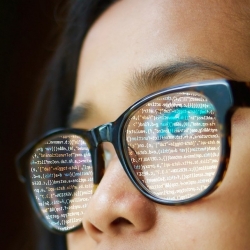

 When Donald Trump was
When Donald Trump was 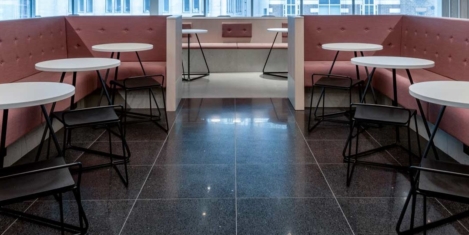
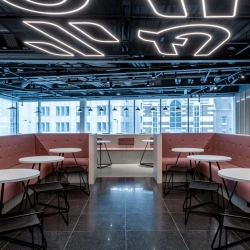 In the face of the revolutionary and long-lasting changes to workplaces across the world resulting from the pandemic, some commentators have suggested that the wide-spread necessity of adopting remote working practices may have made the office obsolete. However, such a dramatic upheaval to the very foundation of the workplace and working dynamic won’t come without a cost, and new data suggests that perhaps the office isn’t the dinosaur many assumed, but still a central pillar to effective businesses as part of a hybrid working strategy.
In the face of the revolutionary and long-lasting changes to workplaces across the world resulting from the pandemic, some commentators have suggested that the wide-spread necessity of adopting remote working practices may have made the office obsolete. However, such a dramatic upheaval to the very foundation of the workplace and working dynamic won’t come without a cost, and new data suggests that perhaps the office isn’t the dinosaur many assumed, but still a central pillar to effective businesses as part of a hybrid working strategy. 
 Almost half (46 percent) of workers expect their employers to provide them with green technology equipment, such as laptops, printers and other devices, according to new research from
Almost half (46 percent) of workers expect their employers to provide them with green technology equipment, such as laptops, printers and other devices, according to new research from 
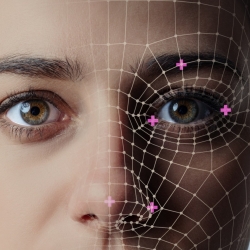 Union body the TUC has today launched a new taskforce to look at the “creeping role” of artificial intelligence (AI) in managing people at work. The taskforce launch comes as a new TUC report,
Union body the TUC has today launched a new taskforce to look at the “creeping role” of artificial intelligence (AI) in managing people at work. The taskforce launch comes as a new TUC report, 


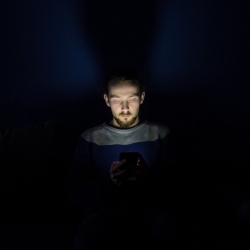 A lack of balance through lockdown has been felt most dramatically by Brits living in house shares according to new research released by
A lack of balance through lockdown has been felt most dramatically by Brits living in house shares according to new research released by 








January 5, 2021
We shouldn’t become village idiots in our new ways of life
by Mark Eltringham • Cities, Comment, Flexible working, Technology